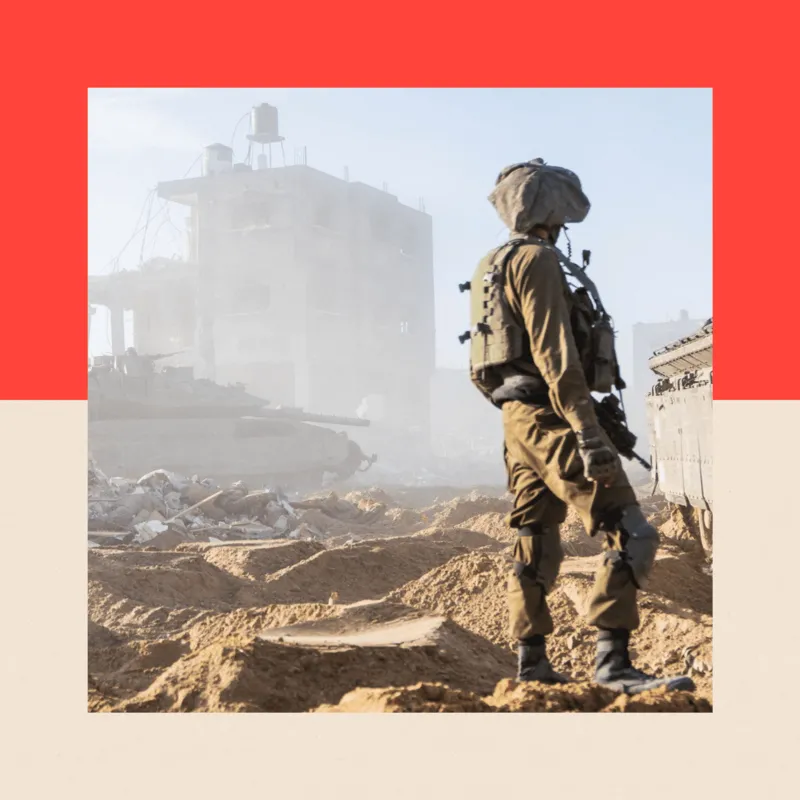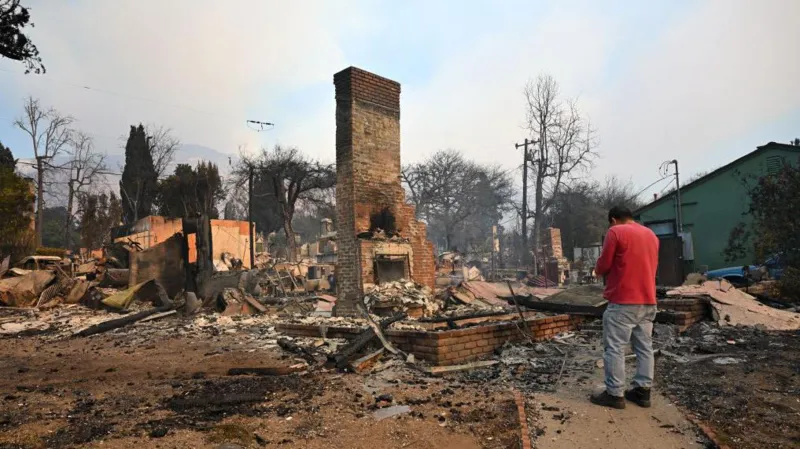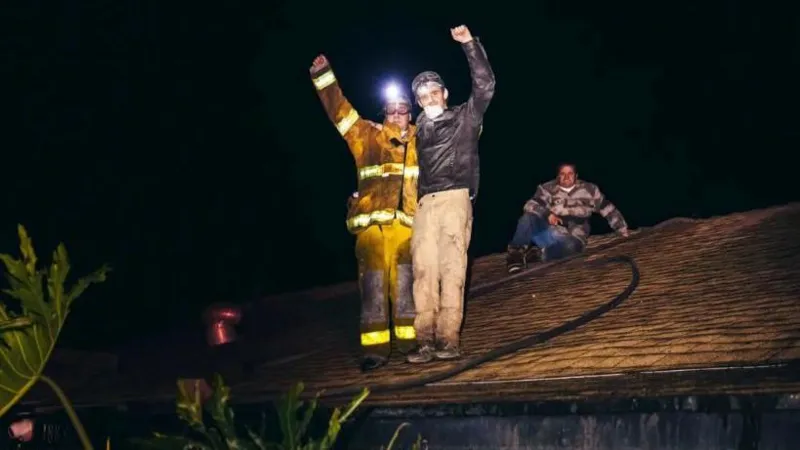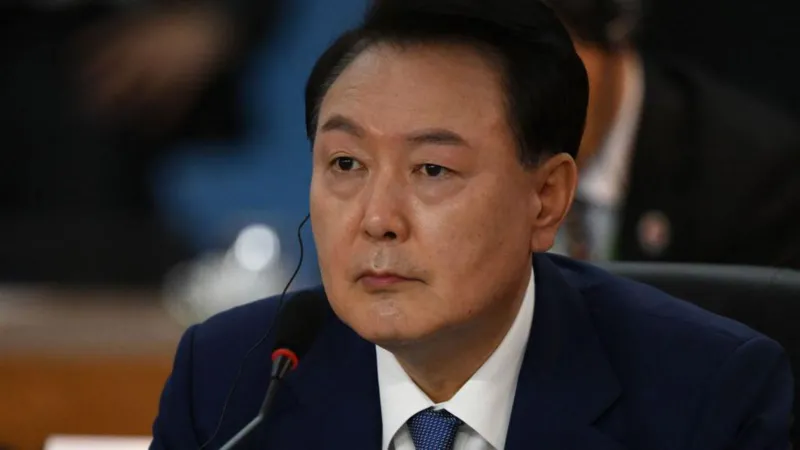Latest News
Why these Israeli men volunteered to fight – but now refuse to return to Gaza

Every single person in his platoon knew someone who was killed. Yuval Green, 26, knew at least three. He was a reservist, a medic in the paratroops of the Israel Defence Forces, when he heard the first news of the 7 October Hamas attack.
“Israel is a small country. Everyone knows each other,” he says. In several days of violence,1,200 people were killed, and 251 more abducted into Gaza. Ninety-seven hostages remain in Gaza, and around half of them are believed to be alive.
Yuval immediately answered his country’s call to arms. It was a mission to defend Israelis. He recalls the horror of entering devastated Jewish communities near the Gaza border. “You’re seeing… dead bodies on the streets, seeing cars punctured by bullets.”
Back then, there was no doubt about reporting for duty. The country was under attack. The hostages had to be brought home.
Then came the fighting in Gaza itself. Things seen that could not be unseen. Like the night he saw cats eating human remains in the roadway.
“Start to imagine, like an apocalypse. You look to your right, you look to your left, all you see is destroyed buildings, buildings that are damaged by fire, by missiles, everything. That’s Gaza right now.”
One year on, the young man who reported for duty on 7 October is refusing to fight.
Yuval is the co-organiser of a public letter signed by more than 165 – at the latest count – Israeli Defence Forces (IDF) reservists, and a smaller number of permanent soldiers, refusing to serve, or threatening to refuse, unless the hostages are returned – something that would require a ceasefire deal with Hamas.
In a country still traumatised by the worst violence in its history, those refusing for reasons of conscience are a minority in a military that includes around 465,000 reservists.
There is another factor in play for some other IDF reservists: exhaustion.
According to Israeli media reports, a growing number are failing to report for duty. The Times of Israel newspaper and several other outlets quoted military sources as saying that there was a drop of between 15% to 25% of troops showing up, mainly due to burnout with the long periods of service required of them.
Even if there is not widespread public support for those refusing to serve because of reasons of conscience, there is evidence that some of the key demands of those who signed the refusal letter are shared by a growing number of Israelis.
A recent opinion poll by the Israel Democracy Institute (IDI) indicated that among Jewish Israelis 45% wanted the war to end – with a ceasefire to bring the hostages home – against 43% who wanted the IDF to fight on to destroy Hamas.
Significantly, the IDI poll also suggests that the sense of solidarity which marked the opening days of the war as the country reeled from the trauma of 7 October has been overtaken by the revival of political divisions: only 26% of Israelis believe there is now a sense of togetherness, while 44% say there is not.
At least part of this has to do with a feeling often expressed, especially among those on the left of the political divide, that the war is being prolonged at the behest of far-right parties whose support Prime Minister Benjamin Netanyahu needs to remain in power.
International
LA fire victims fear new housing crisis

Michael Storc and his family had just survived a devastating wildfire.
Now they have to face a daunting new challenge that he had hoped to never experience again – the Los Angeles housing market.
After losing the Altadena home that he owned in the Eaton fire, he was scouring for a new place to rent, and having little luck.
“What’s available is not nice at all and the rents have gone up a lot,” Mr Storc told the BBC. “I told my teenage daughter we had to accept we would live somewhere not very nice.”
The Los Angeles area already has one of the most expensive real estate markets in the country. And with thousands now displaced by the Palisades and Eaton fires, Angelenos are anxious that the sudden surge in demand could make rents and home prices soar even higher.
California has an anti-price gouging law that prevents landlords from raising rents more than 10% after the governor declares an emergency. It applies to both existing and tenants and new leases.
Follow live updates
LA brain surgeon saves street from fires
Many Los Angeles County buildings are also covered by rent stabilisation laws, which prevent landlords from raising the rent for existing tenants above a certain percentage even in normal circumstances.
“It is illegal. You cannot do it,” California attorney general Rob Bonta said at a Saturday press conference. “It is a crime punishable by up to a year in jail and fines.”
Not everyone was certain that the law would be completely enforceable, however.
“We’re aware of that but my question is, how is that being regulated? And who’s monitoring that?” said Jessica Heredia, a realtor based in the high-end Brentwood neighbourhood for the last 20 years.
International
LA brain surgeon saves street from ‘apocalyptic’ wildfires

A Los Angeles brain surgeon who fought for almost a week to save the houses on his street from wildfires told the BBC he spent 15 years preparing for such an event.
Malibu resident Dr Chester Griffiths, 62, ignored evacuation orders to keep flames from the Palisades fire at bay with the help of his son and neighbour, until emergency services were able to reach them.
“We had always known that a fire would come someday – but we didn’t know when,” Dr Griffiths told the BBC’s Today Programme.
“We never fathomed it would be this catastrophic and apocalyptic.”
International
S Korea begins impeachment trial of suspended president

South Korea’s Constitutional Court has held its first hearing to decide if suspended President Yoon Suk Yeol should be removed from office after his shock martial law attempt last month.
The hearing ended within four minutes because of Yoon’s absence – his lawyers had earlier said he would not attend for his own safety, as there is a warrant out for his arrest on separate charges of insurrection.
In December, Yoon was suspended after members of his own party voted with the opposition to impeach him.
However he will only be formally removed from office if at least six of the eight-member Constitutional Court bench votes to uphold the impeachment.
According to South Korean law, the court must set a new date for a hearing before they can proceed without his participation.
The next hearing is scheduled for Thursday.
Yoon’s lawyers have indicated that he will show up for a hearing at an “appropriate time”, but they have challenged the court’s “unilateral decision” on trial dates.
The court on Tuesday rejected the lawyers’ request for one of the eight justices to be recused from the proceedings.
Yoon has not commented publicly since parliament voted to impeach him on 14 December and has been speaking primarily through his lawyers.
Investigators are also separately preparing for another attempt to arrest Yoon for alleged insurrection, after an earlier attempt on 3 January ended following an hours-long standoff with his security team.
Yoon is South Korea’s first sitting president to face arrest. The second attempt to take him into custody could happen as early as this week, according to local media.
The suspended leader has not commented publicly since parliament voted to impeach him on 14 December and has been speaking primarily through his lawyers.
Yoon’s short-lived martial law declaration on 3 December has thrown South Korea into political turmoil. He had tried to justify the attempt by saying he was protecting the country from “anti-state” forces, but it soon became clear it was spurred by his own political troubles.
What followed was an unprecedented few weeks which saw the opposition-dominated parliament vote to impeach Yoon and then Prime Minister Han Duck-soo, who succeeded him briefly as acting president.
The crisis has hit the country’s economy, with the won weakening and global credit rating agencies warning of weakening consumer and business sentiment.
Former presidents Roh Moo-hyun and Park Geun-hye did not attend their impeachment trials in 2004 and 2017 respectively.
In Park’s case, the first hearing ended after nine minutes in her absence.
Roh was reinstated after a two-month review, while Park’s impeachment was upheld.
-

 Entertainment6 months ago
Entertainment6 months agoEarthquake scientists are learning warning signs of ‘The Big One.’ When should they tell the public?
-

 International6 months ago
International6 months agoTarar accuses Imran Khan of conspiring with Faiz Hameed to destabilise Pakistan
-

 International4 months ago
International4 months agoPTI Announces Not to Boycott New Committees
-

 Business4 months ago
Business4 months agoMajor Corruption Scandal Uncovered at WASA Multan: Rs1.5 Billion Embezzlement Exposed
-

 Business5 months ago
Business5 months agoThe Impact of QR Codes on Traditional Advertising
-

 Business3 months ago
Business3 months agoHigh Court Blocks MDCAT Merit List Amid Controversy Over Exam Error
-

 Business6 months ago
Business6 months agoThe Benefits and Problems of International Trade in the Context of Global Crisis
-

 Business5 months ago
Business5 months agoFraud by Pakistani Firm Sparks Outrage in Business Community; Concerns Rise Over International Investment






